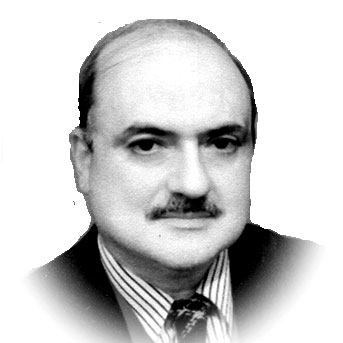Pelf or principle — whither sport ?
WHY is it that any mention of sport these days must involve that of pelf? It is as if the good old days, when sport was just sport and money had nothing to do with it, are now a thing of the past.
A look over the shoulder may be in order. One recalls coming across a news item several years back about a young lady who was addicted to the game of tennis.
It was given out that the lady in question had sequestered fame and a fortune amounting to several million dollars all before attaining the age of twenty years.
If all went well, she was well on her way to join the select group of the wealthiest women on earth. And all because of what was once touted as a sport of gentlemen and gentlewomen.
Take another example. In the game of golf, successful players are not considered as such unless they have collected a purse of several million dollars.
The worth of a player is measured not so much by his or her mastery of the game but by the money he or she has managed to amass over a certain period of time.
It is something of a tragedy that most sports today have degenerated into mere money spinning rackets. In the world of sports, principle has given way to pelf.
At this stage, one may refer to another allied subject. Has the reader ever wondered why it has become virtually routine now–a-days for sportsmen in international competitions to be subjected to what have come to be known in popular parlance as ‘doping tests’? It appears to have become one of the corollaries of the advance in medical sciences.
Apart from new medical discoveries, medical research has at the same time opened up new avenues for drug abuse.
Athletes, as a consequence, take advantage of these discoveries to assimilate what have come to be known as performance-enhancing drugs.
This practice – that regrettably is on the increase – has resulted in serious imbalance in athletic competition and has become the cause of serious concern for the organizers of international sports meets.
It has also put in jeopardy what was once proudly touted as ‘the spirit of sportsmanship’.
Having stated the aforementioned, one must make an effort to pinpoint the origin of – and the rationale behind – some of the regrettable developments in the field of sport.
The one reason that readily comes to mind is the indiscriminate commercialization of sport.
Sport today is no longer o contest among youth but is more in the nature of a money-spinning exercise.
Sport is fast assuming the guise of a passport to making quick money. It appears that the days are gone when sportsmen, and sportswomen, competed for glory.
One regrets having to say so, but the sportsmen of today are hardly a patch on the celebrity heroes of yester-year.
Not an inconsiderable number are in sports merely for the money and not at all for the love of the sport in question.
There are, of course, several honorable exceptions that still hold on to the hallowed values that once sanctified sport.
Several of these continue to strive to uphold the dignity of sport despite fearful odds. But they are in a small minority.
Does the reader recall the time when winning a sports competition was, in itself, an end worth striving for and when there was no greater glory to strive for than to have the honour of representing one’s country on the playing field.
Being on the team was what mattered most and the acclaim of victory was the coveted prize for a true sportsman.
All this was before pelf became the end all be all of sport. Now it is the figure on the cheque that is the prime attraction; all else takes the back seat.
It may be worth recalling that not all that long ago the Olympic Games used to be a competition strictly for amateurs. It was undeniable that prosperous countries did all they could to pamper their sportsmen.
But still, by and large, the sportsmen and sportswomen participating in the Olympic Games were not mercenary.
One recalls that in the late 1950s a medal won by a wrestler from a developing country was challenged on the grounds that the winner had a few years earlier accepted a remuneration equivalent to $5 after winning a wrestling bout in his country. The world of sports has come a long way since then.
Agents and lawyers do big business in sports these days. And so do bookmakers. Millions of dollars change hands; all in the good name of sport! At times one does recall with nostalgia the good old days of amateur sport. Despite the shortcomings and the absence of glitz, sport had a charm all its own.
The world cannot but regret the passing away of an era. It was but inevitable. Sport is not the only activity that has fallen victim to the genie of professionalism.
All round, one sees the all-embracing preponderance of pelf over principle. Be that as it may, nature still has ways of asserting itself.
One is heartened by reports of the prowess of several natural athletes especially from African countries.
These athletes have won memorable victories over doctored athletes from the developed world. Who knows what Mother Nature may have up the sleeve!
— The writer is a former Ambassador and former Assistant Secretary General of OIC.










